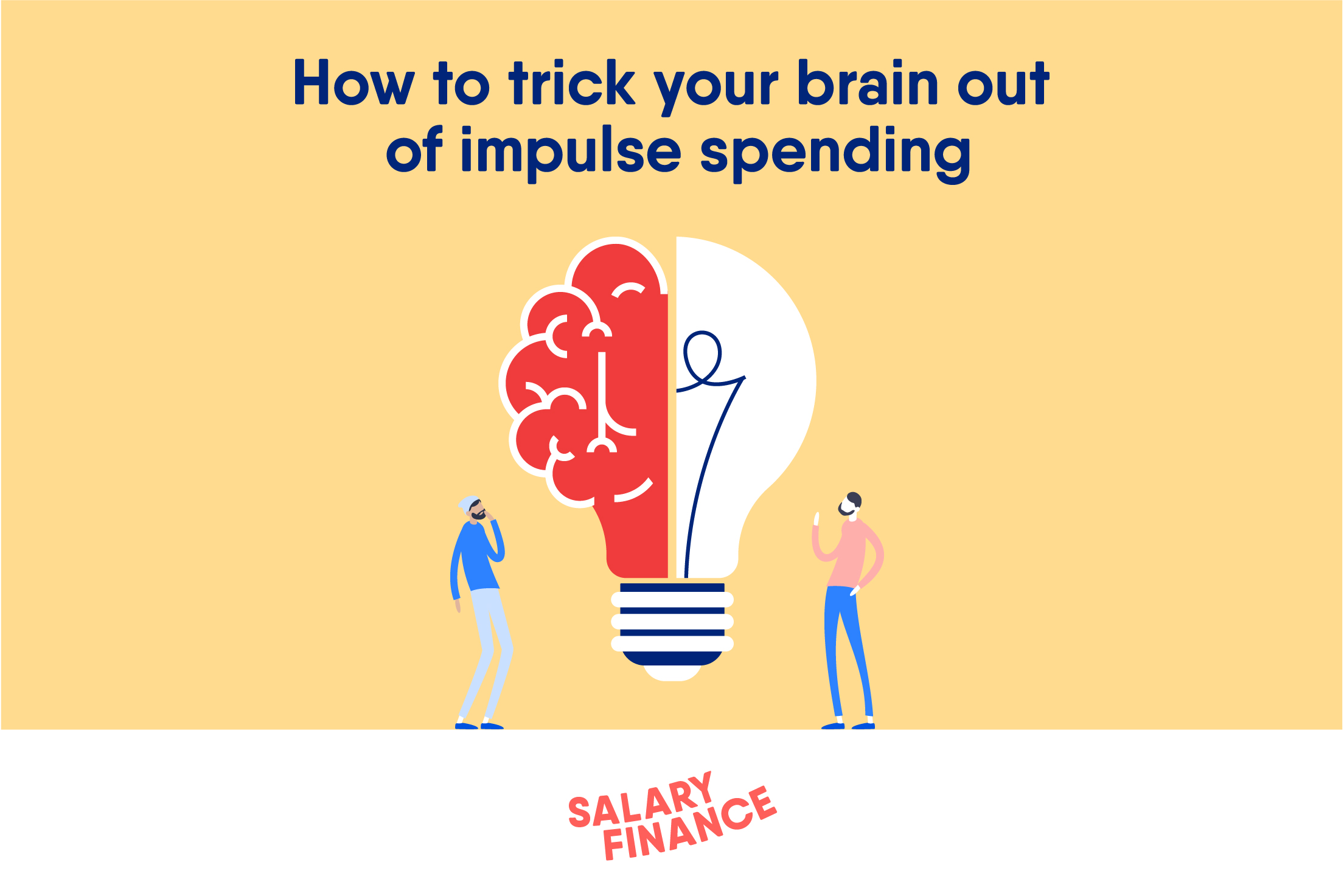
Spending money can be an emotional decision as much as a financial one.
We all know that emotional high you get when you allow yourself to spend a bit of cash on a shiny new purchase. But we’re probably just as familiar with the guilty feeling of spending too much money, again, on things we don’t really need. This not only causes a dent in our account balance, it can also prevent us from reaching our savings goals and being able to afford the things we really want in life.
These more negative feelings are more likely to be associated with impulse buying, rather than careful, considered spending.
A recent study estimates that up to 80% of us have recently made an impulsive purchase. And why is the number so high? Because large retailers - whether in stores or online - understand the psychological cues that will prompt us to buy. They design their store layout, advertising, and marketing campaigns to encourage us to spend, spend, spend.
Examples include BOGO (buy one get one free) sales, and the growing popularity of shopping holidays like ‘Cyber Monday’, where popular items are discounted when purchased on a specific day.
The fleeting nature of these flash sales creates a sense of urgency, and encourages you to panic buy, without stopping to ask if you really need or want this product — or even to check if the discount is as good as the headline suggests.
It’s an old adage, but buying a $100 item that’s marked down by 50% doesn’t mean you’ve saved $50, it still means you’ve spent $50.
Retailers may have a well-paid army of marketing experts, but there are a number of tricks that you can use to help resist the allure of the impulse buy. Below are some handy tips to keep spending under control in the run-up to the holiday season, or any time of year.
Stick to cash
This won’t work with online purchases, but if you are heading to the stores, particularly during seasonal sales, plan to pay in cash. Psychological studies have shown using debit or credit cards eases the pain of paying and results in you spending more. Brain scan studies show that when people think about making purchases with plastic, the parts of the brain linked to pleasure and anticipation light up. But those who imagine paying in cash have both the pleasure and pain regions stimulated, suggesting they’re truly weighing the financial costs of the transaction. It’s for this reason casinos use ‘chips’ rather than actual currency at the gaming tables: it lulls gamblers into a false sense of security that this isn’t ‘real’ money, encouraging them to splurge. Taking cash out in advance (and leaving your cards at home) also enables you to set a budget, and be forced to stick to it.
Delay the moment of gratification
Try to delay a purchase you want to make. This gives yourself time to ask those key questions: do I really need this item, and do I need to buy it today? Make it a rule to wait at least 24 hours — or better still, a week — before you actually buy. You can then mull over your options. If a week later you still feel it’s a ‘must have’ then you’ll get a lot more pleasure from your purchase when you finally get it home. This built-in delay will also give you time to shop around on price.
Build extra barriers
Retailers make it as easy as possible for us to spend money, with ‘one click’ purchase options offered by most online stores and the ability for your web browser to store your card information. Who wants to get off the sofa, find their wallet, and tap in a 12-digit card number these days! Shrewd shoppers disable these convenient and all-too-easy to use options. To take it up a level, delete any saved payment details on your computer, and then tuck your wallet in an upstairs drawer before browsing online. If you really need an item, it’s not an insurmountable hardship to retrieve it, but it’s striking how even small hurdles nudge us towards being less likely to buy.
Clear out your ‘cookies’
It pays to clear out your browsing data on your web browser regularly. If you don’t, you’ll be bombarded with ads for items you’ve been browsing online. You may have resisted buying initially, but a persistent reminder of ‘what you could have had’ every time you log onto Facebook can wear down the resolve of even the most careful shoppers. Best to just remove the temptation altogether, if you can.
Phone a friend - or better yet, take them shopping
Don’t rely on store clerks telling you that a jacket looks great, or this is the new season’s must-have colour for home decor. Take a friend and get an honest opinion (though avoid those you know will just encourage you to spend more).
This has another psychological advantage - it opens our spending decision to a degree of public scrutiny. In other words, being frank with someone else about what we are spending forces us to be more honest with ourselves. You can do a similar trick by writing down all your spending and sharing it with someone else on a regular basis. Think about whether you’d be happy posting this information on social media. If this makes you feel deeply uncomfortable, then perhaps reconsider some of these purchases.
Don’t shop until you drop
Avoid going shopping or browsing online when you’re tired or distracted. This can reduce our ability to focus and make logical decisions. Similarly, don’t plan long shopping trips or spending hours surfing your favorite shopping sites. Research suggests we suffer from ‘decision fatigue’: in other words we have limited amounts of willpower, and if our resources become depleted we are more likely to make impulsive decisions.
We all know that grocery shopping while hungry leads to buying more unhealthy snacks; in the same ways, shopping till you drop means you’ll end up spending more on things you don’t need.






